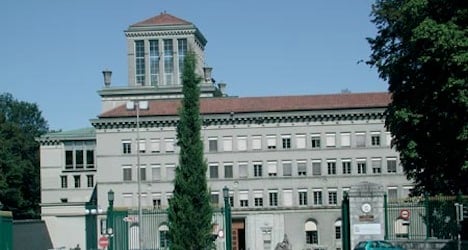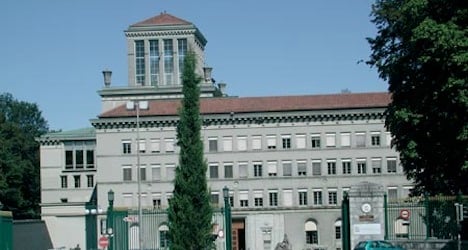Roberto Azevedo, who took over as WTO director general in September, has vowed to spare no effort during last-ditch talks at its Geneva base, as diplomats struggle to craft a draft accord to ease barriers to global commerce.
The World Trade Organization’s 159 member economies are locked in what officials dub a “meat-grinder”, striving to bridge differences between rich countries, emerging powers and the world’s poorest nations over the concessions needed to yield a deal for a ministerial summit on December 3rd-6th on the Indonesian island of Bali.
“It is all or nothing now. We must tie the package up once and for all in the next few days,” Azevedo, Brazil’s former WTO envoy, told negotiators on Tuesday.
The WTO’s ruling body, the General Council, is scheduled on November 21st to decide whether it can put a deal on the table in Bali.
Trade sources said there is little prospect for real negotiation in Bali itself to seal a deal.
The summit is seen as perhaps the last chance to revive the WTO’s so-called “Doha Round” of talks, launched in 2001 in Qatar.
The round’s goal is to craft a wide-ranging global accord on opening markets and removing trade barriers, in order to harness international commerce to develop poorer economies.
WTO rules require such deals to be unanimous, but bitter differences over the necessary give and take have sparked clashes notably between China, the European Union, India and the United States, leaving the talks stalled for years and leading many countries to shift focus to bilateral and regional deals.
“I think the risk of failure is still present,” warned Azevedo, whose predecessor, Frenchman and former EU trade chief Pascal Lamy, was unable to secure a deal during eight years in charge of the WTO.
No results in Bali would mean no serious WTO negotiations for a long time, trade sources said, underlining that regional deals tend to involve rich countries or emerging powers, sidelining the poorest nations.
‘Either they hit the wall or pole-vault it’
“Since launching the round 12 years ago, the WTO has never met a deadline it liked,” Sergio Marchi, Canada’s former trade minister and former WTO envoy, told AFP.
“Now, the gig is up in terms of credibility,” Marchi said.
“Bali is the wall — either they hit it head-on, or pole-vault it,” he said.
“The public and business community are tired of the ongoing treadmill process. In Bali, I believe the WTO owes them clarity and candour,” Marchi said.
“Either agree on a substantive outcome or declare that the current Doha deal, as constructed, is dead.”
Negotiators have long written off the chances of Bali offering major Doha Round headway, and have sought lower-level accords that could be fed into the wider package later.
One is on “trade facilitation”, the crux of which is simplifying customs procedures, a move forecast to cut trading costs by 10 percent for rich nations and around 14 percent for the developing world.
Negotiators in Geneva managed Sunday to settle rules for cooperation between WTO members’ customs services.
“It is not perfect, but the core of an agreement is there,” said Azevedo, though “there remain some very hard nuts to crack”.
He said the “biggest iceberg” was the time-lag developing countries would get to smooth their customs rules, and the technical assistance they could expect from rich countries and international lenders such as the World Bank in order to do so.
Another division is over “food security”, pushed by India, under which developing countries want to be allowed to subsidize grain stockpiling to help low-income farmers and consumers.
India and like-minded nations argue that protecting the poor trumps rules on weaning WTO members off subsidies.
Critics, however, say there is a risk that despite stated noble intentions, stockpiles could leak onto the domestic or international market, skewing global farm commerce.
Other issues to be hammered out include “export competition”, or government financial incentives for exporters.
Developing countries want rich nations to make a firm commitment in Bali to slash payouts, seen as giving the wealthy world an unfair advantage in global trade.
“A big question mark hangs over this issue,” said Azevedo.
Officials underlined that the US, EU and Japan see it as a bargaining chip to be used down the path to a Doha Round deal.
Another major area of dispute are so-called “tariff quotas”.
Quota administration is highly technical, but has huge impact on trade, as it decides whether a product exported from one country can gain access to the market of another country at a lower, within-quota tariff.
“It’s very difficult to find middle ground when you have black and white, yes or no,” said a trade source.



 Please whitelist us to continue reading.
Please whitelist us to continue reading.
Member comments